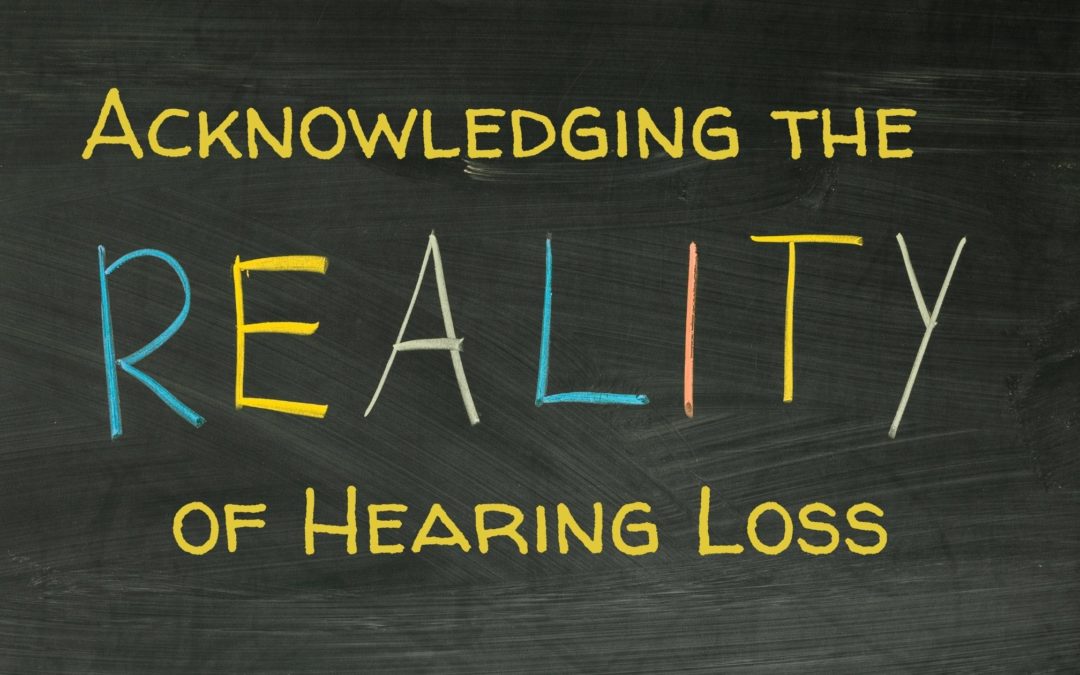Hearing loss is one of the most common health conditions people experience today. Impacting 1 in 6 people, hearing loss still remains widely underdiagnosed. In fact, it takes an average of 7 years for a person to seek treatment from the time they start experiencing symptoms. Acknowledging changes to hearing health can be difficult which contributes to this delay in treatment. But not addressing symptoms can worsen impairment and lead to additional health complications. Recognizing symptoms and intervening early can help transform your hearing health and daily life!
Causes
Hearing loss affects over 48 million people, making it the third most common chronic medical condition navigated today. Several factors can contribute to the development of hearing loss. A few common causes include the following:
Aging. Also known as presbycusis, age-related hearing loss is common among older adults. According to the National Institute on Deafness and Other Communication Disorders:
1 in 3 adults, ages 65-75 have some degree of hearing loss
1 in 2 adults, ages 75 and older have disabling hearing loss
This can be caused by a few factors including: the cumulative toll of loud noise exposure
on the auditory system, other medical conditions that increase the risk of hearing loss
which also impact older adults disproportionately, or changes to the ears.
Loud noise. One time or consistent absorption of loud noise can damage the hair cells in the inner ear. These hair cells translate incoming soundwaves into electrical signals that are then carried to the brain to be further analyzed. Loud noise can cause hair cells in the inner ear to lose sensitivity, affecting their capacity to perform this essential function. According to the World Health Organization, over 1 billion teenagers and young adults globally are at increased risk of developing hearing loss due to loud noise exposure.
Existing conditions. Several medical conditions increase the risk of developing hearing loss. This includes cardiovascular disease, hypertension, diabetes, and osteoporosis. These conditions impact blood flow, oxygen circulation, and bone health which affects the ears and how they absorb as well as process sound.
Head/neck injuries. Trauma to the head/neck area can cause physical damage to the components of the auditory system: outer, middle, inner ear.
Other causes of hearing loss include chronic ear infections, inner ear disorders, and autoimmune issues.
Symptoms
Hearing loss reduces a person’s ability to perceive and process speech and sound. This creates a range of symptoms that make it difficult to navigate communication. Common symptoms include:
Tinnitus: a buzzing or ringing like noise in one or both ears
Sounds are muffled, distorted, slurred
Turning up the volume on the television and/or other electronic devices
Asking others to speak louder, slower, or repeat what they’ve said
Difficulty hearing in places with background noise, needing to move to a quieter space to hear better
Greater ability to hear in one ear compared to the other
Missing words or parts of a conversation
Feeling drained after social interactions
These symptoms can be mild to profound, taking a toll on all aspects of life. Untreated hearing loss makes having conversations difficult which can lead to retreating from social interaction. Social withdrawal is a major effect of hearing loss, resulting in spending less time with others. This strains relationships and contributes to loneliness and stress. Additionally, untreated hearing loss can increase the risk of experiencing other health issues including cognitive decline, accidental injuries, and depression.
Treatment
Intervening early and addressing hearing loss can significantly alleviate symptoms and enhance quality of life. Hearing loss is diagnosed by a hearing healthcare specialist (like an audiologist) who conducts a hearing test. Hearing tests involve a painless and noninvasive process that measures hearing capacity in both ears. This identifies any hearing loss and the degree of impairment present in each ear. Once your hearing needs are established, your hearing healthcare provider is able to recommend treatment options that can effectively meet those needs. The most common treatment for hearing loss is hearing aids which are electronic devices that help amplify and process sound. This significant support not only maximizes hearing but also strengthens communication, improves relationships, and overall health. Call us today to schedule an appointment for a hearing aid consultation!


